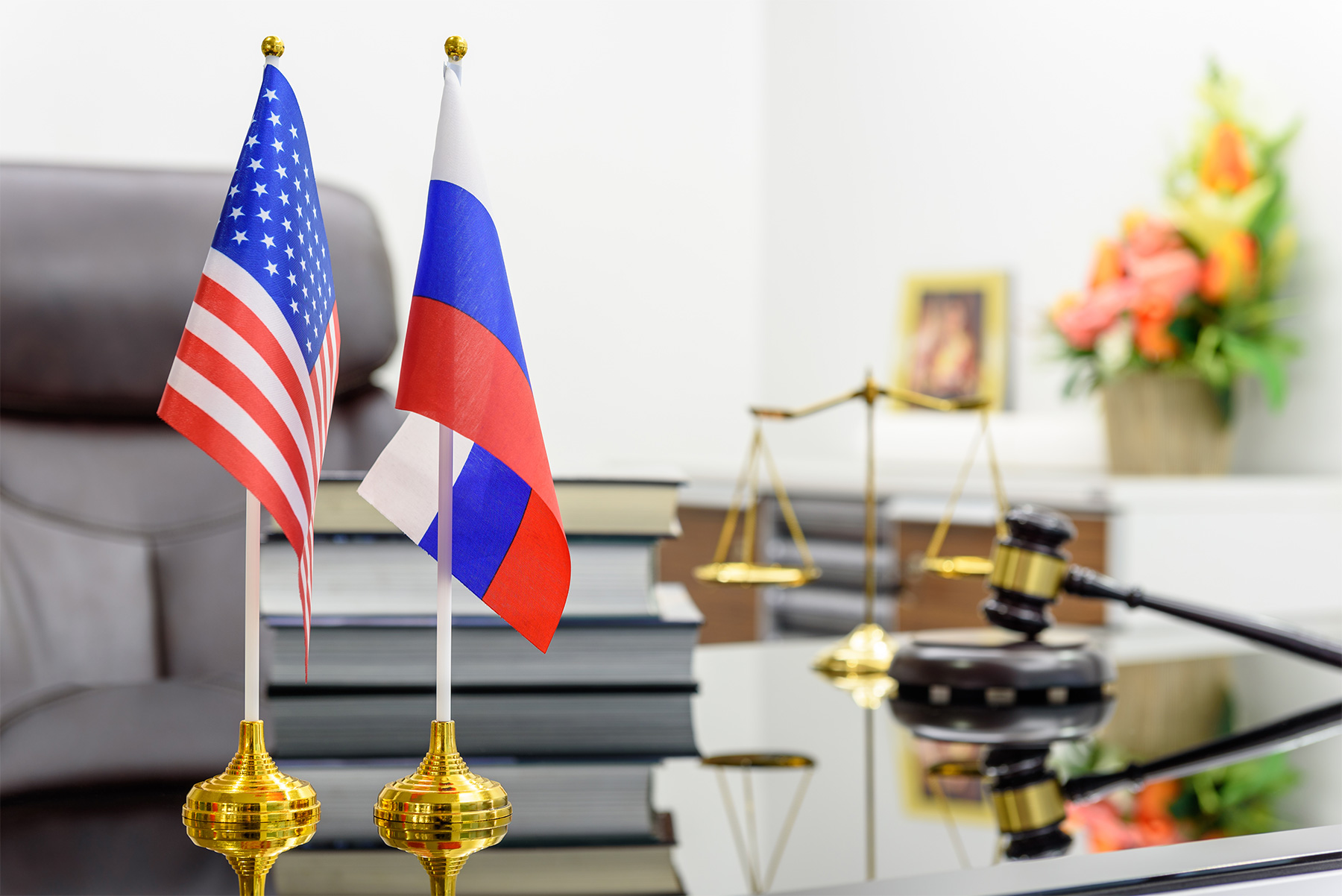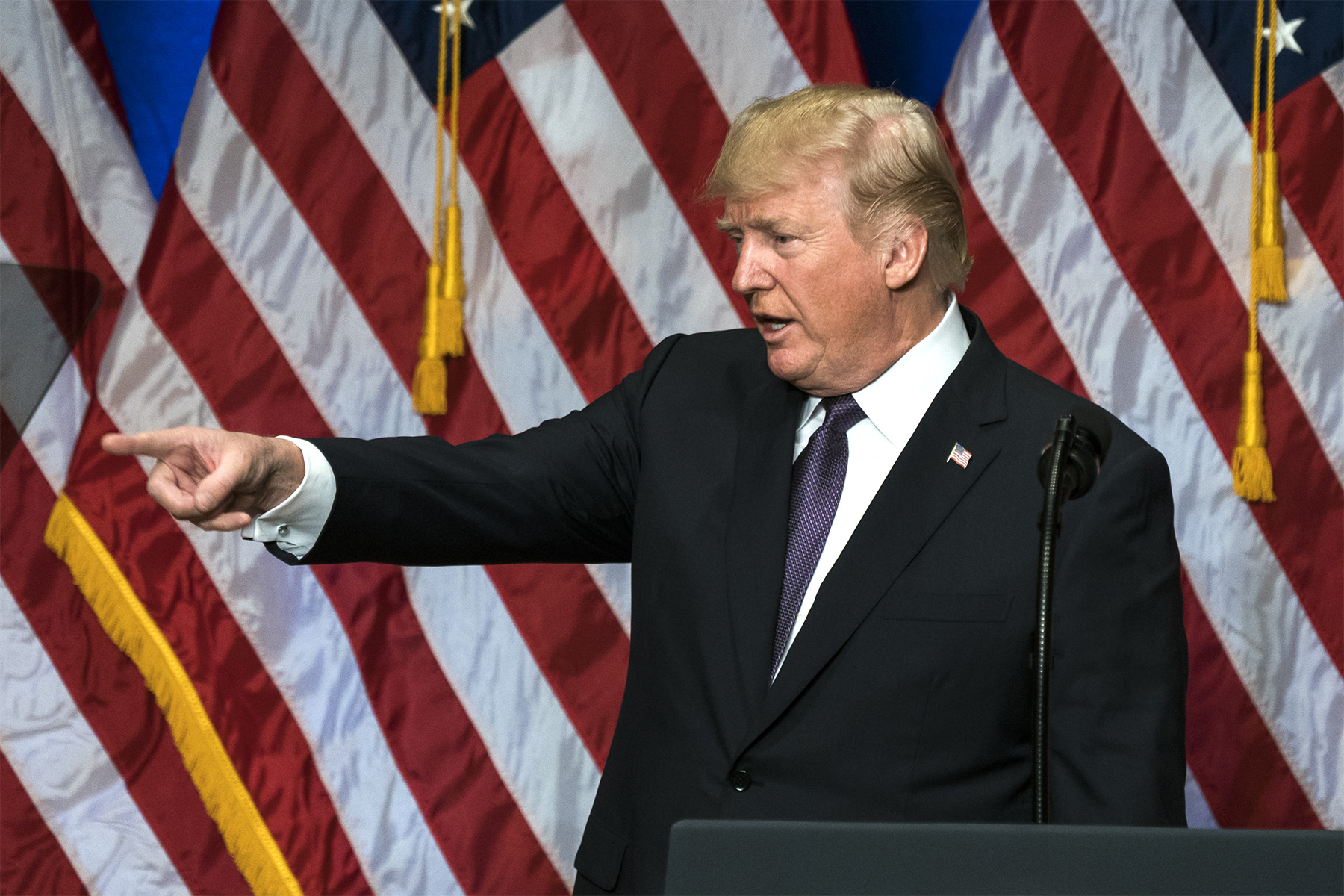The US Treasury Department submitted a list of Russian “oligarchs” to Congress. This was done under PL 115-44 (CAATSA) adopted on August 2, 2017. Article 241 of the act places the Treasury Department, along with the CIA and the State Department, under obligation to provide detailed information about the Russian establishment, oligarchs, state companies and other organizations that have an association with the state and play an important part in the Russian economy. Their inclusion on the list depends on their proximity to the Russian president and other representatives of the “ruling elite.”
The bottom line is that the Americans are unlikely to achieve any major results in their attempts to alter Russia's political course or to destabilize its political system. On the contrary, it is likely to become stronger in the next few years. However, Moscow will still need to seek a political solution to the situation in Ukraine. Moving forward with regard to Ukraine will make it possible to return to constructive cooperation with the EU which is a much more important player for Russia’s economy and trade.
The US Treasury Department submitted a list of Russian “oligarchs” to Congress. This was done under PL 115-44 (CAATSA) adopted on August 2, 2017. Article 241 of the act places the Treasury Department, along with the CIA and the State Department, under obligation to provide detailed information about the Russian establishment, oligarchs, state companies and other organizations that have an association with the state and play an important part in the Russian economy. Their inclusion on the list depends on their proximity to the Russian president and other representatives of the “ruling elite.”
The report of the Treasury Department was eagerly anticipated on both sides of the Atlantic. The high degree of tension can be accounted for by the fact that the law binds the Treasury Department to include in the report information about the level of corruption among the listed individuals, the sources and amounts of their incomes, as well as the incomes of their families, and the assets they own. The report must also indicate an assessment of advisability of blacklisting these individuals and organizations by the Treasury Department, that is, applying existing sanctions to them. The list turned out to be fairly compact, which is not surprising, because the time allocated for preparing it was limited. However, the anti-Russia lobby could have pushed for more extensive lists, since this is a one-time report, and the law does not require it to be continuously updated.
Leaving aside the hype surrounding the individuals on the list, let's try to assess the strategic consequences of the Americans’ efforts. How effective is this step considering that US executive authorities must submit several more reports on other topics during the year, such as Russian media, “interference in the elections,” energy security, countering “Russian aggression” in Europe and Eurasia, etc. What are the Americans trying to achieve and what can they actually accomplish?
This is an attempt by US lawmakers to apply targeted and painful pressure on the Russian elite and its income sources, as well as the key sectors of the Russian economy that ensure the welfare of the “regime.” In fact, we are talking about destabilizing the existing political system, fragmenting Russia's political elite, and creating conditions for an ultimate change of political power in our country. Acknowledging this is not a good enough reason to become hysterical or plunge into another conspiracy theory of US involvement or machinations of the Washington “regional party committee” [as some here refer to the US deep state]. However, we know from experience that of 174 episodes of sanctions imposed by all countries in the 20th and early 21st
centuries, 80 were specifically sought to induce a political regime change. The United States is the most active originator of sanctions with 109 of 174 sanctions under its belt, not counting the Ukrainian package and other programs in the 2010s. In this sense, the American sanctions go much further than the EU sanctions. The EU seeks to change the Russian political course regarding Ukraine, but is not concerned with the Russian political system. The American sanctions cover a much wider range of issues (corruption, human rights, cybersecurity and non-proliferation). And they provide for tougher measures.
Indeed, making public a list of “oligarchs” is an unpleasant surprise for the Russian elite. Moreover, in order to be blacklisted by the Treasury Department, a person does not have to be included in any reports to Congress. The current report is rather a symbolic step, a tool for informing Congress. The Treasury Department can expand the lists without any reports whatsoever. Given the openness of the Russian economy and the global integration of its elite, the use of sanctions can create problems. The sanctions imply that individual members of the elite either remain loyal to Russia, but get disconnected from global finance and other means, or retain these means, but disassociate from the Russian authorities. Being listed requires a choice. You have to decide whose side you are on, the “whites” or the “reds.” This is not the most favorable situation for major businesses which prefer discretion to political hoopla.
Nevertheless, the prospects for this American policy are extremely vague. There are several reasons for this.
First, the existing system for decision-making regarding the sanctions leaves American diplomacy with little leeway for compromise. Even if we assume that Russia will make concessions and agrees to cooperate on certain issues, the executive branch will be extremely limited in its ability to lift the sanctions. Congress can thwart a retraction. Or, they can be revised by the next administration. America's attempts to change the nuclear deal with Iran are a case in point. None of that is likely to add credibility to Washington on the part of Moscow, which learned its lesson and does not want to be taken for a ride. A breakthrough in our relations with Washington is unlikely. Moscow will find it difficult to cope with the financial noose of US sanctions, but it will be extremely difficult to isolate Russia diplomatically, which makes Russian leadership more determined as it tries to maintain its political course.
Second, in the current situation, the Russian economic elite is unlikely to dare to break with the country. Its welfare will certainly be affected in the event of a large-scale “cut-off” from global finance and other benefits. But still, its sources are in Russia. Therefore, inclusion in the sanctions may even be beneficial as a testament to “loyalty.” It is also important that the Russians still have vast opportunities regarding their participation in the global economy and trade. Foreign business is wary of Russian assets, and is looking into possible consequences and risks. However, it is also in no hurry to give up cooperation with Russia. Once under the sanctions, the Russians will find it more difficult to manage their assets abroad. However, many avenues remain open.
Third, American sanctions against corruption can unwittingly play into Russia's hand. If the Americans really want to limit the corruption schemes used by Russians abroad (this is what the PL 115-44 act is about), then Russia will only benefit from this by reducing the amounts of illegal capital flight. Ultimately, corruption does not have a nationality, and fighting it is in the interests of all countries, including Russia.
Fourth, the Russian authorities have quite effective levers for redistributing financial resources within the country. The experience of imposing sanctions on other countries shows that the sanctions affect the middle class and vulnerable social groups, who are forced to dip into their pockets to cover the losses. The devaluation of national currency hits them hardest. However, the state is usually able to protect the interests of the political elite, to preserve its loyalty and at the same time to control the protest, and to use the sanctions factor to rally and consolidate other social groups in the face of an external threat. Russia is hardly an exception in this regard.
Fifth, the Russian economy is still quite large and has a safety buffer. Of course, it suffers from serious setbacks. Its volume is at variance with the political ambitions of the country, whereas the growth issues are the most painful problem. However, it should hardly be underestimated. The sanctions can hamper economic growth, but are still not a key factor. Effective reforms and overcoming numerous economic “bottlenecks” are much more important for it. Sanctions are a negative factor and should be taken off the table. However, it is important to avoid the illusion that lifting them will resolve development and growth issues. This would require consistent change with long-term goals.
The bottom line is that the Americans are unlikely to achieve any major results in their attempts to alter Russia's political course or to destabilize its political system. On the contrary, it is likely to become stronger in the next few years. However, Moscow will still need to seek a political solution to the situation in Ukraine. Moving forward with regard to Ukraine will make it possible to return to constructive cooperation with the EU which is a much more important player for Russia’s economy and trade.
Author: Ivan Timofeev is Programme Director of the Valdai Discussion Club, Director of Programs at Russian International Affairs Council (RIAC).
First published in Valdai Discussion Club







